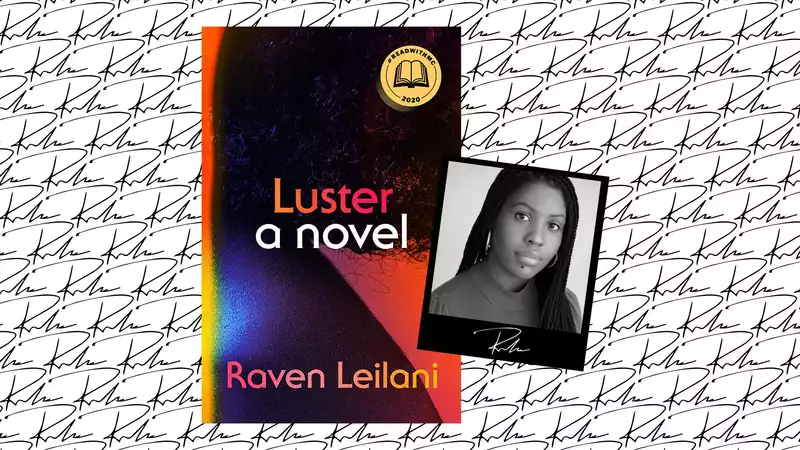
Luster" is Marie Claire's Book Club Pick for August
#ReadWithMC (opens in new tab)-Welcome to Marie Claire's virtual book club. It's a pleasure to meet you, and for the month of August we will be reading "Luster" (opens in a new tab) by Raven Leilani (August 4). The novel follows Edie, an aspiring artist in her twenties, who finds herself in an open marriage to a digital archivist named Eric and his wife, an autopsist. As Edie tries to navigate this chaotic world, it is not without conflicts of race and sexual identity. Read excerpts from the book and learn how to join the virtual book club here (opens in a new tab). (You really don't have to get off the couch, just click here).
I had an abortion my senior year of high school. The thought of pregnancy only lasted a moment, when I was about to break a grain of sand in half to meet my ambition to give birth to a lung. At the time, I was working a retail job in a dying shopping mall. Eighteen hours a week, I smoothed my chinos and shadowed the aggressive Quebecois customers coming to upstate New York. Only four stores were open at the mall: a CVS, a Deb's with $5 high-waisted panties, a gun store, and my store, an old, rundown little boutique for professional women. I was a miserable sales associate, prone to a spiral of penance as I tried to move the store's loyalty card, but I was a force to be reckoned with, as long as the seasoned employees were doing their jobs well enough to have time for socializing. I alone tended the store at lunchtime, and the other two associates were so worried about my awkwardness with customers that they interrupted our lunch outing to the Boston Market. The fact that I was not invited to lunch felt more like a kindness than contempt. They were nice to me and brought back creamed spinach and soggy macaroni. During this time, I wasn't sure if I liked being alone or if I was just enduring it because I felt I had no choice.
I was neither popular nor unpopular. To be admired or ridiculed, one must first be in the public eye. So the story of the cell that once split within me and its subsequent disappearance is also the story of the man who first saw me. A man named Clay, who owned a gun store, was a metalhead with morbidly well-maintained teeth. He was the seventh black man I had met in Latham. He was of mixed Korean and Nigerian genes, a race so ambiguous that he looked like a different person in the right light. On the day I first met him, he was smoking a cigarette in a DDR machine outside a shuttered movie theater. He told me that he was in debt and that he and his brother were no longer speaking to each other, and as we quickly got to know each other, I told him how my mother had died. That I found my mother with one shoe still on. That I kept trying to draw this moment but could not find the proper format. That it had only been five months since my mother's death and my father was already seeing someone else. This was a contradiction that would define me for years, my attempts to secure pure solitude and my immediate betrayal of this effort once the spotlight was on a man of interest. I pretended not to worry about the consequences of my solitude. But every time I talked to someone, I found myself overcompensating for the atrophy of my social muscles.
I was content to be added to something, even if it was an almost one-sided conversation with a man twice my age. When we met for lunch, he bought me ice cream. I sat in his station wagon and watched him load and unload guns. I leaned against the display case of tanto point knives and ran my fingers through his hair. When he asked my age, I lied. When I told him that my father had not been home for weeks, he made sure I had money for food, sometimes calling me to tell me what I needed to eat. However, there were still moments when I felt his wariness. He was surprisingly curt in his use of vulgar language and in his subtle questions about the age of my fictitious boyfriend, which I provided.
Copyright (c) 2020 by Raven Leilani. Excerpted with permission of FSG.
If audio is your preference, you can listen to the excerpt below (open in new tab) and read the rest of the book on Audible (open in new tab).
.
Comments